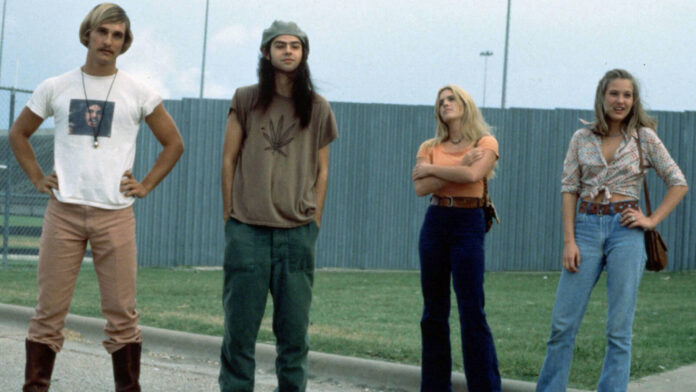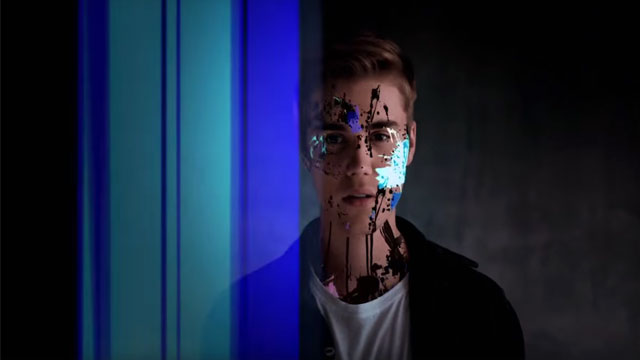Nostalgia is a sentimentality for the past, typically for a period or place with happy personal associations. Nostalgia can be triggered by something reminding us of an experience from the past, such as a song, a movie, or a TV show. Nostalgia is often characterized as a longing or desire to return to a former time or place, or to relive a positive emotion.
Nostalgia is not just about happy memories; it can also be about longing for a time when things were simpler, or when we felt more connected to others. Nostalgia can be a source of comfort, joy, and inspiration in times of sadness or distress.
Nostalgia is especially prevalent in the entertainment industry, as many films and TV shows are either set in the past, or are remakes, reboots, or continuations of popular franchises from previous decades. Some examples of nostalgia-driven entertainment are:
– Stranger Things, a Netflix series that pays homage to the sci-fi and horror genres of the 1980s
– The Matrix Resurrections, a sequel to the iconic sci-fi trilogy that started in 1999
– Friends: The Reunion, a special episode that reunites the cast of the beloved sitcom that ran from 1994 to 2004
– The Lion King, a live-action remake of the 1994 animated classic
– Cobra Kai, a YouTube series that follows the characters of The Karate Kid movies from the 1980s
But what is it about nostalgia that makes it so appealing and enjoyable? And what are the benefits and drawbacks of indulging in nostalgia? In this article, we will explore these questions and more.
How would you describe nostalgia?
Nostalgia is a complex and multifaceted emotion that can have different meanings and effects for different people. According to one definition, nostalgia is “pleasure and sadness that is caused by remembering something from the past and wishing that you could experience it again.” [1]
However, nostalgia is not just about wishing for the past; it can also be about finding meaning and value in the present. According to another definition, nostalgia is “a longing for a home that no longer exists or has never existed. Nostalgia is a sentiment of loss and displacement, but it is also a romance with one’s own fantasy.” [2]
Nostalgia can also be seen as a way of reconnecting with our past and understanding our present. According to Swiss psychiatrist Carl Jung, nostalgia was a way to access the “collective unconscious” – the shared history and experiences that we all have as human beings. [3]
What is media nostalgia?
Media nostalgia is a specific type of nostalgia that is triggered by media products, such as films, TV shows, music, books, games, etc. Media nostalgia can be influenced by various factors, such as:
– The age and generation of the consumer
– The personal and cultural significance of the media product
– The quality and originality of the media product
– The availability and accessibility of the media product
Media nostalgia can be divided into two main types: personal nostalgia and historical nostalgia. [4]
Personal nostalgia is when we feel nostalgic for media products that we have personally experienced or consumed in our past. For example, someone who grew up watching Friends might feel nostalgic for the show because it reminds them of their childhood or adolescence.
Historical nostalgia is when we feel nostalgic for media products that we have not personally experienced or consumed in our past, but that represent a certain historical period or culture. For example, someone who was born after the 1980s might feel nostalgic for Stranger Things because it portrays an idealized version of that decade.
What makes a show nostalgic?
There are many factors that can make a show nostalgic, such as:
– The genre and style of the show
– The setting and time period of the show
– The characters and actors of the show
– The music and sound effects of the show
– The references and homages to other media products in the show
A show can be nostalgic for different reasons and for different audiences. For example, a show like The Wonder Years might be nostalgic for people who grew up in the 1960s and 1970s, because it depicts the life and challenges of that era. A show like The Mandalorian might be nostalgic for people who are fans of the Star Wars franchise, because it expands and enriches the universe and lore of that saga.
What are the different types of nostalgia in film?
There are many types of nostalgia in film, such as:
– Remakes: films that recreate or update a previous film, such as The Lion King or Beauty and the Beast
– Reboots: films that restart or reinvent a previous film or franchise, such as The Amazing Spider-Man or Ghostbusters
– Sequels: films that continue or conclude a previous film or franchise, such as The Matrix Resurrections or Toy Story 4
– Prequels: films that explore the backstory or origin of a previous film or franchise, such as Rogue One or The Hobbit
– Spin-offs: films that focus on a side character or story from a previous film or franchise, such as Solo or Fantastic Beasts
– Adaptations: films that are based on other media products, such as books, comics, games, etc., such as Harry Potter or The Hunger Games
– Homages: films that pay tribute or respect to a previous film or genre, such as La La Land or Once Upon a Time in Hollywood
– Parodies: films that mock or spoof a previous film or genre, such as Scary Movie or Austin Powers
Benefits of Being Nostalgic
Being nostalgic can have many positive effects on our well-being and happiness, such as:
– Boosting our mood and self-esteem
– Reducing our stress and anxiety
– Increasing our social connectedness and belonging
– Enhancing our creativity and imagination
– Inspiring our hope and optimism
According to research, nostalgia can help us cope with negative emotions and situations, such as loneliness, boredom, or uncertainty. Nostalgia can also help us maintain our identity and values, by reminding us of who we are and what we care about. Nostalgia can also motivate us to pursue our goals and dreams, by showing us what is possible and desirable. [5]
Can You Be Too Nostalgic?
While nostalgia can be beneficial and enjoyable, it can also have some drawbacks and limitations, such as:
– Distorting our memory and perception of reality
– Making us dissatisfied with our present and future
– Preventing us from adapting and growing
– Alienating us from others who do not share our nostalgia
– Exploiting us for commercial or political purposes
According to research, nostalgia can sometimes make us idealize the past and overlook its flaws and challenges. Nostalgia can also make us compare the past with the present unfavorably, and make us feel unhappy or hopeless about our current situation. Nostalgia can also hinder us from embracing change and learning new things, by making us cling to the familiar and comfortable. Nostalgia can also isolate us from others who have different experiences or preferences than us, and make us less open-minded and tolerant. Nostalgia can also be used by others to manipulate us into buying products or supporting causes that appeal to our emotions rather than our reason. [6]
How to Enjoy Nostalgia in Entertainment
Nostalgia in entertainment can be a wonderful way to relive the past, connect with others, and escape from reality. However, it is important to enjoy nostalgia in moderation and balance, and to be aware of its potential pitfalls. Here are some tips on how to enjoy nostalgia in entertainment:
– Be selective and critical: choose media products that are high-quality, original, and meaningful to you, rather than consuming everything that is nostalgic. Also, be critical of the messages and values that are conveyed by the media products, and do not accept them uncritically.
– Be mindful and grateful: pay attention to the emotions and memories that are evoked by the media products, and appreciate them for what they are. Also, be grateful for the present and the future, and do not take them for granted.
– Be creative and proactive: use the media products as a source of inspiration and motivation, rather than as a substitute for reality. Also, be creative and proactive in creating your own media products or experiences that reflect your interests and passions.
– Be social and inclusive: share your nostalgia with others who have similar tastes and experiences as you, but also respect and learn from those who have different ones. Also, be social and inclusive in engaging with others who are interested in the same media products as you.
Nostalgia is a powerful emotion that can enrich our lives in many ways. Nostalgia in entertainment can provide us with entertainment, comfort, joy, inspiration, hope, connection, meaning, value, identity.







